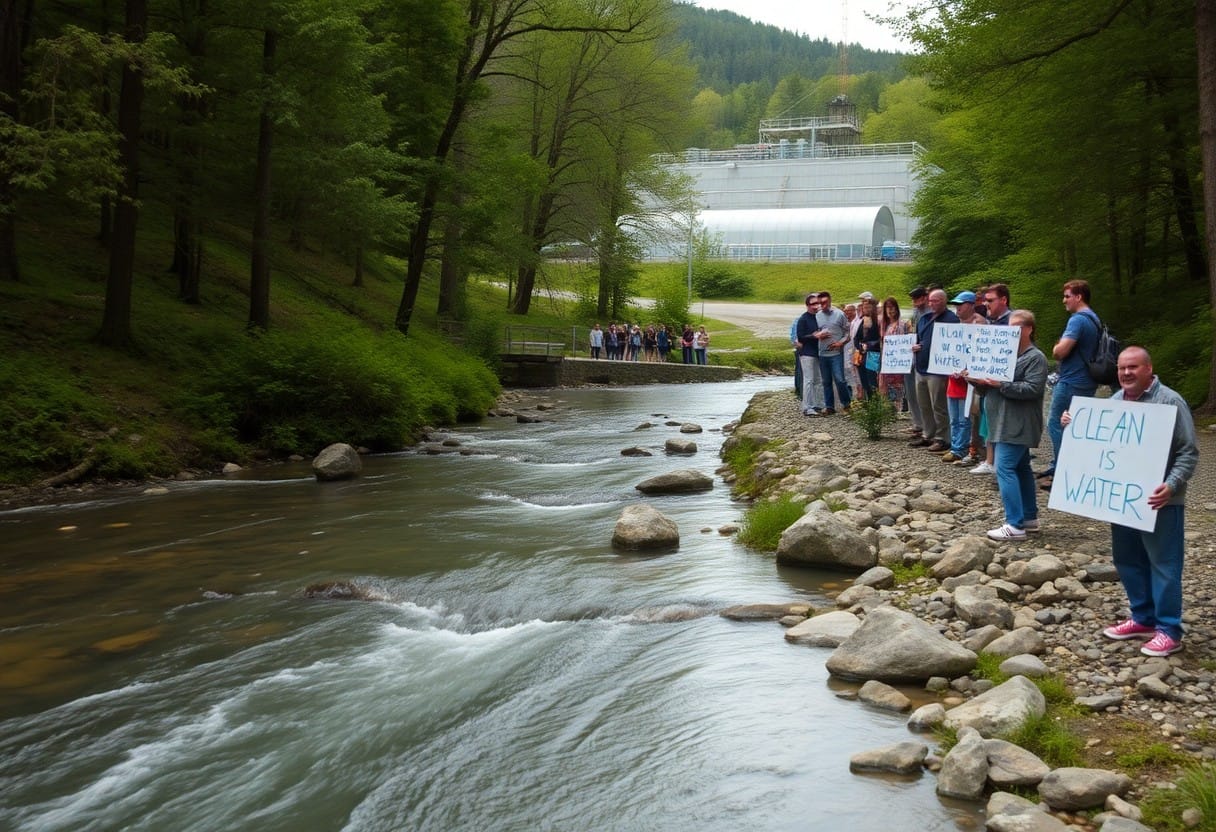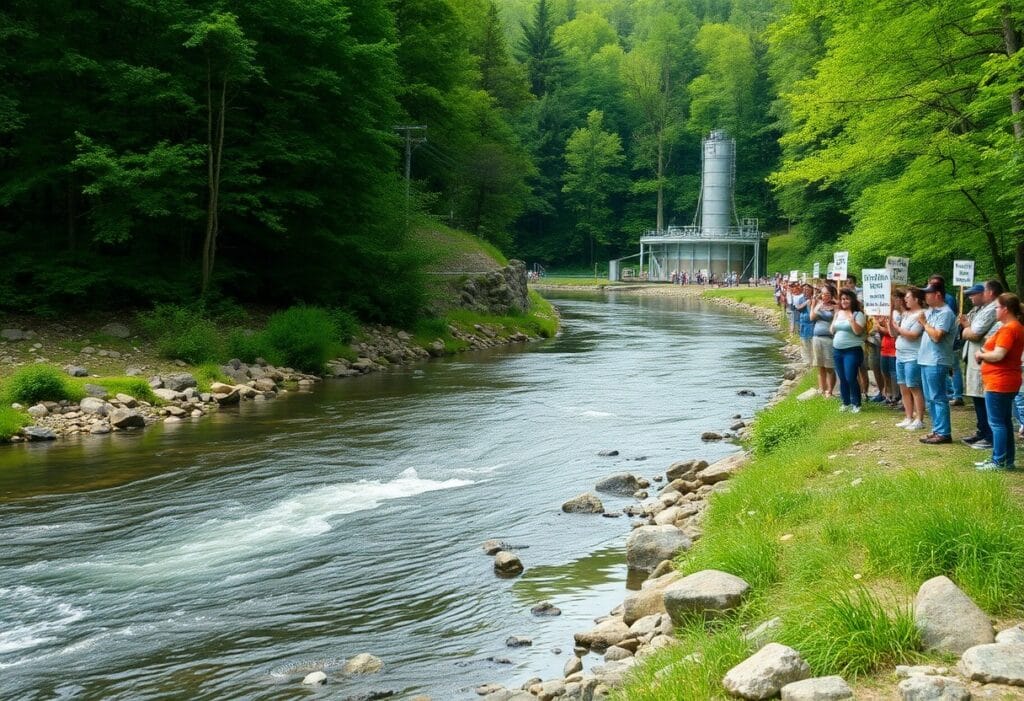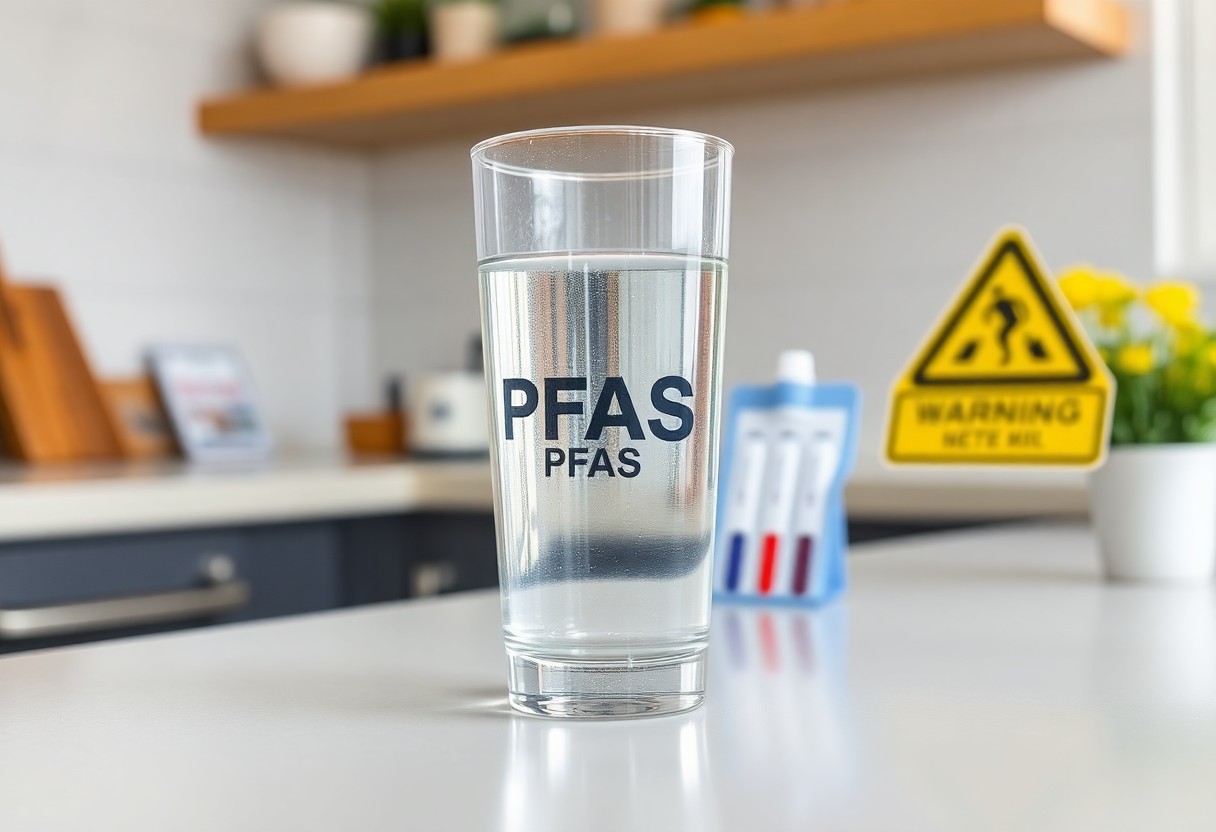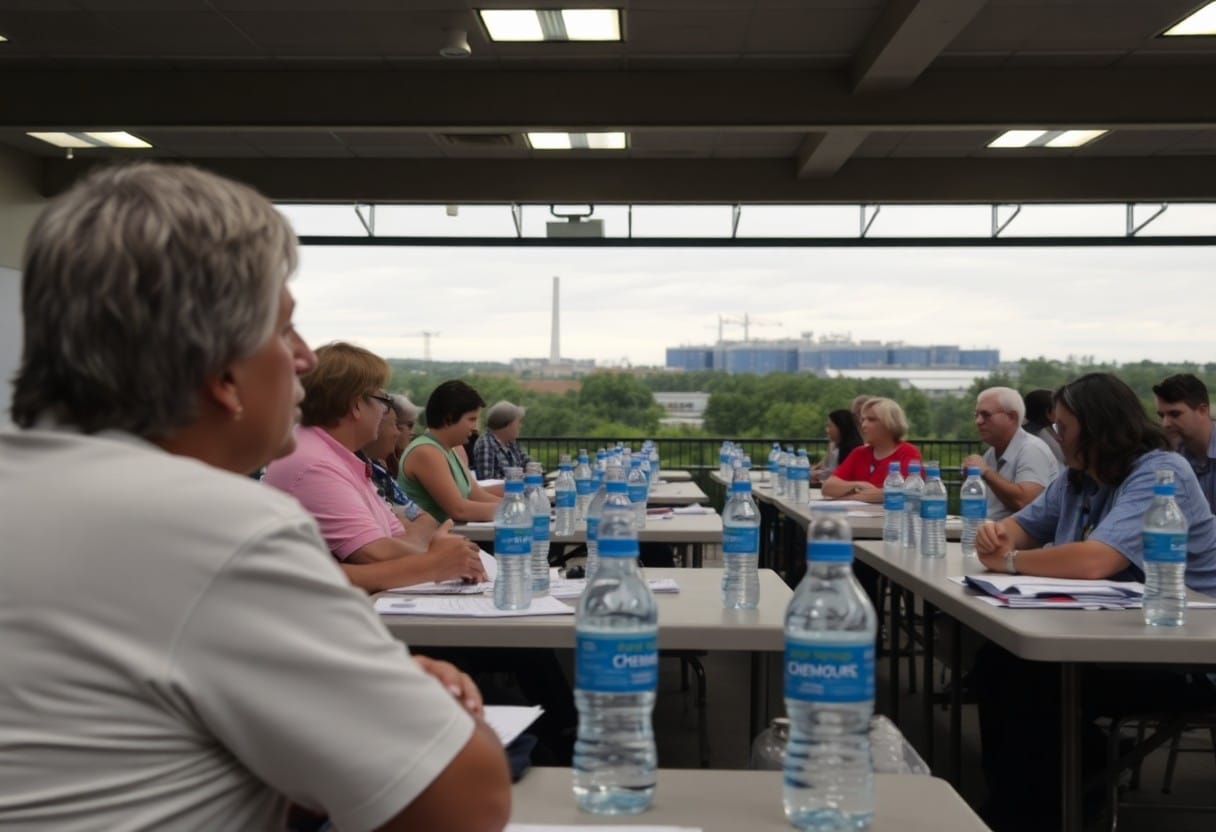Many residents of Fayetteville are grappling with the aftermath of the Chemours water crisis, which raised significant concerns regarding your drinking water’s safety. As you navigate this uncertain landscape, understanding the potential paths forward is imperative for restoring public trust and ensuring clean water access for all. From advocating for enhanced water treatment systems to fostering community engagement in environmental policies, there are actionable steps you can take to help your community heal and rebuild a resilient foundation for the future.
Background of the Water Crisis
For many residents of Fayetteville, the water crisis surrounding Chemours’ operations has become a pressing issue. Contamination concerns stem from the release of harmful chemicals into the Cape Fear River, leading to a significant focus on water safety and public health. As state authorities and the community grapple with these challenges, understanding the situation becomes vital in moving toward a resolution.
Overview of Chemours’ Operations
After the establishment of Chemours in Fayetteville, the facility’s operations focused on industrial chemicals, particularly those used in manufacturing. However, the production processes have raised concerns due to the release of per- and polyfluoroalkyl substances (PFAS) into the local environment. Such chemicals have become notorious for their persistence in nature and potential health impacts.
Impact on Fayetteville’s Water Supply
Impact from Chemours’ pollution has significantly affected Fayetteville’s water supply, raising alarm among residents about potential health risks. The contamination of the Cape Fear River has necessitated a shift toward alternative water sources, pressuring local officials to address safety concerns and inform the public about water quality.
Understanding the gravity of the situation is vital for you as a resident. The presence of PFAS in your drinking water can lead to serious health implications, prompting local authorities to implement precautionary measures. While efforts are underway to improve water quality, the urgency for transparent communication about risks and potential solutions remains a priority. Engaging in community discussions provides an opportunity for you to stay informed and advocate for better protections of Fayetteville’s water resources.
Community Response
While the water crisis caused by Chemours has raised significant concerns among Fayetteville residents, it has also sparked an impressive community response. Citizens have banded together to seek safer water solutions, sharing information and resources to ensure you are informed. Community meetings and forums have become vital spaces for dialogue, empowering individuals to take meaningful action regarding the water quality issues impacting your health and well-being.
Local Advocacy Efforts
By organizing grassroots campaigns, local advocates are working diligently to raise awareness regarding the water contamination crisis. Initiatives include educational workshops, fundraising activities, and collaborations with environmental organizations aimed at restoring trust and fostering a cleaner environment for your community.
Government and Agency Involvement
Around the crisis, various local and state agencies have stepped in to address the contamination issues caused by Chemours. Agencies like the North Carolina Department of Environmental Quality have initiated investigations and established regulations to mitigate health risks associated with contaminated water sources.
For instance, state officials have mandated periodic testing of water supplies to ensure safety and transparency for residents. The involvement of agencies has also led to action plans aimed at remediating existing contamination while ensuring your access to reliable water sources. Local government has engaged in collaboration with federal entities to secure funding for necessary infrastructure improvements, ultimately working towards restoring your faith in local water supplies and ensuring that you receive clean, safe water.
Health Implications
One of the most pressing concerns stemming from Chemours’ water crisis is the direct impact on public health. Contaminated water sources pose serious risks, leading to heightened anxiety among residents about the safety of their drinking water. Understanding these implications is vital for fostering community resilience and ensuring the well-being of Fayetteville’s citizens.
Potential Risks to Public Health
Below are several potential risks you may face due to exposure to contaminated water, including increased likelihood of developing certain diseases and compromised immune systems. Concerns about long-term exposure to toxic chemicals also heighten anxiety among those living in affected areas.
Long-term Consequences for Residents
Consequences of Chemours’ contamination can extend well beyond immediate health concerns, affecting your daily life and community well-being. Understanding the lasting impact of chemical exposure is important. You may notice increased instances of chronic health issues, such as respiratory diseases, additional stress placed on your healthcare system, and potential declines in local property values. The psychological burden of uncertainty regarding your family’s health can also contribute to growing tension within the community. Proactive measures and clear communication about safety can help mitigate these long-term consequences.
Restoration Strategies
Your community must prioritize restoration strategies that effectively address the aftermath of Chemours’ water crisis. Engaging with Well Sampling Information for Residents in Bladen … – NC DEQ will guide residents on how to ensure their drinking water is safe and hold responsible parties accountable.
Water Filtration Solutions
Restoration efforts can greatly benefit from the implementation of advanced water filtration solutions, which serve to remove contaminants and ensure clean water access for your community. Investing in reliable systems will not only enhance water quality but also restore your confidence in local resources.
Environmental Remediation Plans
Remediation strategies are important for addressing sites contaminated by chemical spills. The proposed environmental remediation plans involve *thorough assessments* of *pollution levels*, followed by the implementation of *cleanup techniques* designed to remove harmful substances from affected areas. These plans aim to restore *ecosystems*, safeguard community health, and *prevent future contamination*. Your participation in monitoring these remediation efforts will influence their effectiveness and ensure that public safety remains a top priority.
Policy Recommendations
Many stakeholders, including local leaders and environmental advocates, must unite to promote sustainable policies that protect your community’s water resources. These changes can foster accountability and transparency, ensuring that industries like Chemours adhere to the highest standards for environmental safety. For more insights on the fight for clean water in Cumberland County, check out “It’s terrible”: Fight for clean water in Cumberland County ….
Regulatory Changes Needed
Among the key steps you can advocate for are stricter regulations on chemicals in your water supply. This includes enhanced testing protocols and mandatory reporting for pollution incidents, which can help ensure that all stakeholders prioritize community health.
Funding and Support for Affected Areas
Affected communities require immediate financial support to remediate contaminated water sources and implement long-term solutions. Local governments should seek state and federal grants aimed at addressing chemical pollution, which can significantly improve the health of both residents and ecosystems.
Even a modest increase in funding for water quality programs can lead to significant improvements in your community’s water supply. You should advocate for partnerships with non-profits and governmental agencies to secure necessary resources. Prioritizing clean water access can foster taxpayer confidence while bolstering local infrastructure, ultimately contributing to a healthier environment and community well-being.

Future Outlook
Despite the challenges posed by Chemours’ water crisis, Fayetteville has the opportunity to emerge stronger. The community can prioritize environmental restoration and foster partnerships among local organizations and government officials. Strategic planning, increased awareness, and investment in technology can pave the way for a safer water supply, ensuring that residents’ concerns are addressed and their health is safeguarded.
Building Community Resilience
Alongside efforts to improve water safety, your community’s resilience can be fortified by promoting active engagement among residents. By participating in local initiatives and educating yourself and others about environmental issues, you can help to cultivate a culture of awareness and responsibility, empowering Fayetteville to face future challenges together.
Ensuring Sustainable Water Practices
About implementing sustainable water practices, it is vital that you consider both short-term and long-term solutions. This involves advocating for regulatory measures to protect water sources, supporting technologies that purify water, and engaging in conservation efforts to make the most efficient use of available resources.
Resilience comes from your ability to adapt and utilize sustainable methods for managing water. By investing in advanced filtration systems, promoting water-saving technologies, and supporting community-led conservation initiatives, you can help ensure a clean and safe water supply. Building partnerships with local authorities to implement environmental safeguards not only protects your water sources but also contributes to a healthier ecosystem. Together, these efforts lay the groundwork for a future where Fayetteville not only recovers from the Chemours water crisis but also thrives through sustainable practices that prioritize public health and environmental integrity.
To wrap up
To wrap up, you have the opportunity to engage in community discussions, support local organizations focused on environmental safety, and advocate for stricter regulations to ensure clean water access in Fayetteville. Your involvement can help raise awareness about the ongoing challenges and influence decision-makers to prioritize sustainable practices. By staying informed and active, you can contribute to a brighter and healthier future for your community, fostering resilience and restoration in the wake of Chemours’ water crisis.


















